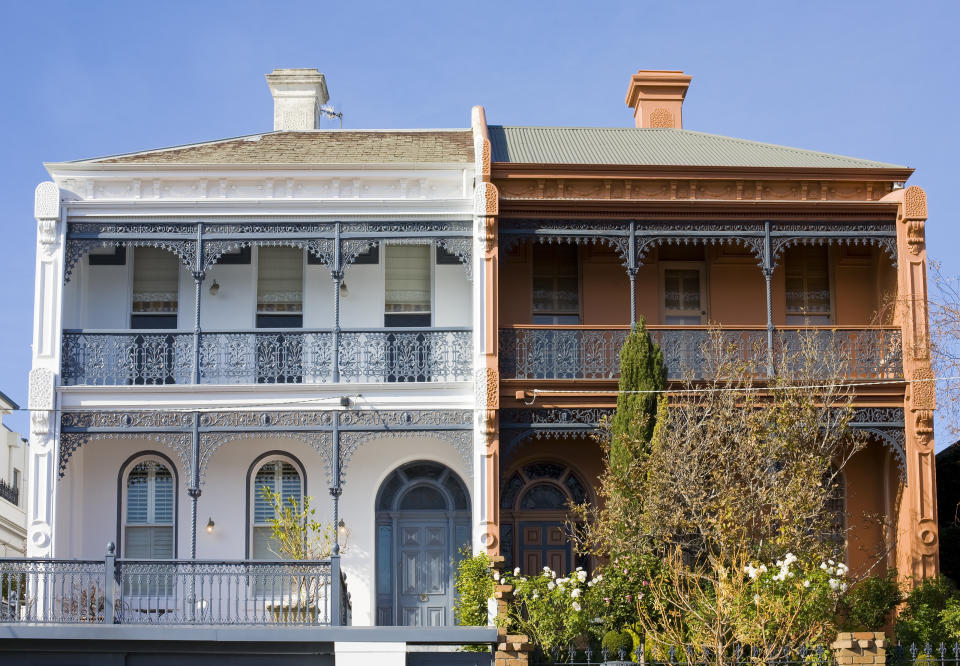Renters: Here’s how to make the most of falling house prices

Most Australians know that the property market is slowing, with Sydney and Melbourne markets in particularly waning as an influx of new apartments take the edge off a supply deficit.
The rate of weekly rent growth has slowed to only 0.4 per cent over the last year, while Sydney has seen rents slip 6.1 per cent, according to the latest data from property insights firm, CoreLogic.
As analysts at the firm have noted for months now, the transition into a buyers market is well under way – although it’s still “severely expensive” in Australia’s cities.
But the softening – albeit slow – market means there are increasing opportunities for both buyers and renters, especially outside of the hotspots.
Renvesting
Rentvesting – the practice of investing in a property while renting somewhere else – is considered an alternative way to get into the property market, and for a lot of people is a cheaper way of getting on the ladder without having to sacrifice lifestyle.
Rentvestors will often invest in properties outside of the capital cities where properties are cheaper and live in the city or in locations they find more attractive.
But the property strategy isn’t for everyone.
We spoke to the CEO of Rent.com.au, Greg Bader to learn more.
How do you know if rentvesting is the right step for you?
It’s a big call and certainly isn’t for everyone. It can be much more complicated than simply buying a home to live in; with rentvesting you will be an owner, a landlord and a tenant all at the same time.
What do you need to know about before purchasing a rentvestment property?
Buying a property as a rentvester is really not that different (in practical terms) when compared to purchasing an investment property. However, you also need to service the rent at the property where you choose to live, so you need to be realistic (model a ‘worse case’ scenario) from an affordability point of view.
Can you afford the mortgage and the rent at the same time? What if interest rates go up? What if you can’t find a tenant? It’s important to have a buffer for this, and for any unexpected maintenance costs.
Property ownership is a long term strategy, and for most of us it’s also our biggest purchase. There is no such thing as “too much” research and if you are not familiar with things like vacancy rates, yields, and opportunity costs, then I would suggest it’s not yet for you.
Should Australians be concerned about buying an investment property in this slowing market?
Yes is the simple answer. However different regions are in different cycles, so there are still opportunities out there but certainly you would want to be more cautious. Realistically we are in a market of limited capital growth, so the return (yield) becomes more important.
Regional markets are generally cheaper (to buy, but also to rent), but you should be very careful in smaller areas that can be reliant on a small number of major projects to bring people to the town – many investors are still reeling from regional mining town investments.
And what are your thoughts on Labor’s negative gearing, Capital Gains Tax policies on this front and for rentvestors?
That’s a million dollar question. I don’t know if it will make property prices and renting cheaper or more expensive. With the rental market it’s simply a supply and demand equation; 30 per cent of our community rents and if rental stock decreases then the cost of renting will increase (we saw this happen recently in Hobart).
In the Sydney market however, we are seeing more stock and whilst rental prices have not dropped as much as sale prices, there is certainly more choice and renters are bargaining harder. For a rentvestor specifically – they sit on both sides of the equation so there is somewhat of a “netting” effect.
Is now a good time to dive in?
For many rentvestors, they started off as an owner, and then became a rentvestor because they wanted to move for work or lifestyle reasons (and rather than selling, kept the property).
I don’t think there is specifically a good or bad time to dive in, as there are lots of variables that impact housing prices. I am not confident that anyone can time the market accurately from a short term perspective. For me, the best strategy is to first invest in educating yourself before making a move into the property market.
Make your money work with Yahoo Finance’s daily newsletter. Sign up here and stay on top of the latest money, news and tech news.
Now read: Here’s how much Aussie property prices are being slashed all across Australia
Now read: Arrears pain is dull but mortgage regulation is excruciating
Now read: The 5 worst Australian property markets in each state

 Yahoo Finance
Yahoo Finance 
